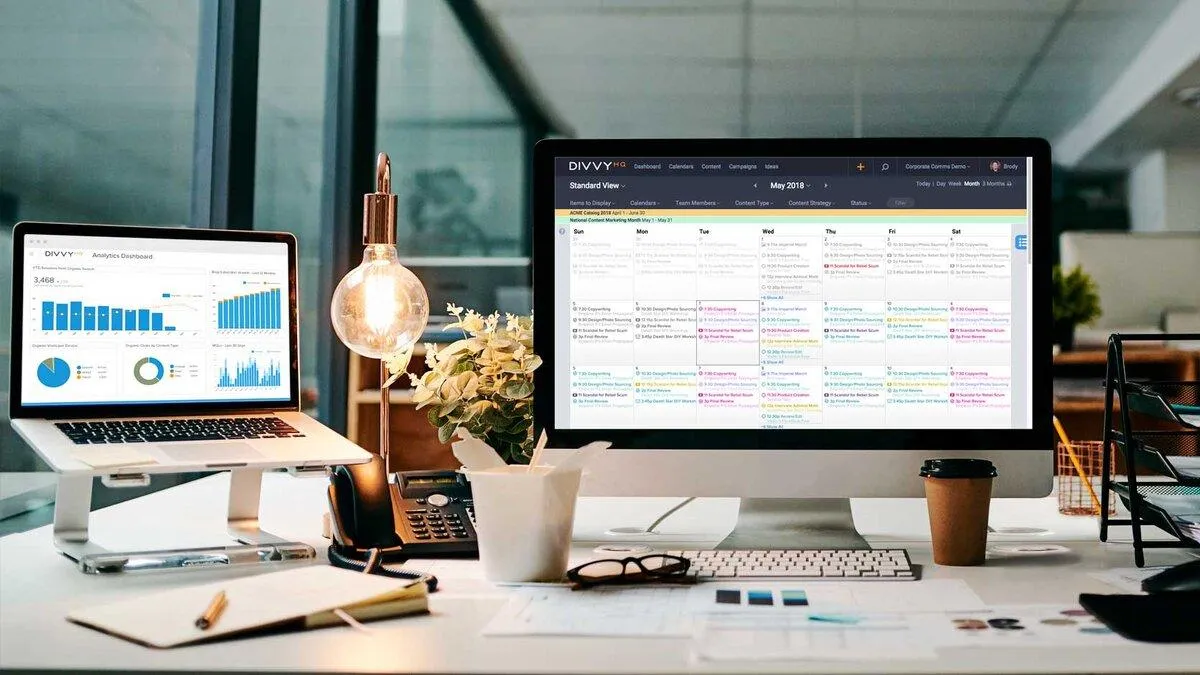Best Law Practice Management Software for Solo Attorneys in 2025
Being a solo attorney means wearing every hat, lawyer, receptionist, bookkeeper, marketer, and office manager, all in the same day. You're building cases while answering client emails, tracking deadlines, managing billing, and somehow still trying to grow your practice area.
It's a lot.
That's why more solo lawyers are turning to law practice management software. These tools function like a virtual assistant, streamlining casework, organizing documents, automating repetitive tasks, and helping you stay on top of everything without feeling overwhelmed.
In 2025, legal tech has advanced to the point where even a one-person firm can run like a well-oiled machine. The right software won't just save you time, it'll save you money, reduce errors, and give you the breathing room to focus on your clients.
In this guide, we'll explore what law practice management software does, the features solo attorneys need most, and the best tools to consider this year. Whether you're just starting or looking to upgrade your current system, you'll find everything you need, including free resources, to make a wise, confident choice.

Table of Contents
1. What Is Law Practice Management Software?
Law practice management software is a digital platform that helps you run your firm more efficiently. It centralizes everything you do, case tracking, client communication, billing, calendaring, document storage, and more, into one organized system.
For solo attorneys, it's not just about convenience. It's about survival.
Instead of juggling five different tools and drowning in spreadsheets, you get one streamlined dashboard to manage your entire workload. Most platforms are cloud-based, meaning you can access them anytime, from anywhere, even from your phone between court hearings or client meetings.
These tools are built for the way law firms operate. Unlike generic task managers or CRMs, legal practice software understands compliance, trust accounting, statute of limitations tracking, and confidentiality requirements.
At its core, this software exists to help solo practitioners:
Save time on repetitive admin work
Stay organized and reduce errors.
Improve communication with clients using AI reputation management.
Track billable hours and get paid faster.
Handle more cases without hiring staff.
With the right platform, you don't just manage your firm, you elevate it.
2. Why Solo Attorneys Need Practice Management Software
When you're running a solo practice, time is your most valuable asset, and your most significant limitation. You don't have a team to delegate to, and every missed call, late invoice, or forgotten deadline falls directly on your shoulders. That's why having a system that supports your day-to-day operations is more than helpful, it's essential.
Here's how the right practice management software can make your solo firm more efficient, organized, and scalable:
Centralize Your Entire Practice
Instead of bouncing between a calendar app, your inbox, a billing tool, and stacks of paperwork, practice management software pulls everything into one secure platform. From open cases to upcoming deadlines to pending invoices, it's all there.
Result: Less digital clutter, fewer dropped tasks, and more mental bandwidth to focus on legal work.
Save Time with Built-In Automation
Tired of chasing down intake forms or manually sending follow-up emails? Automation handles routine tasks, such as sending appointment reminders, invoices, and onboarding account creation after consultations.
Result: Fewer tasks slip through the cracks, and you reclaim hours each week without hiring help.
Get Paid Faster with Legal Billing Tools
Billing is often a pain point for solo attorneys. With legal-specific billing features, you can track time as you work, generate invoices instantly, and even set up online payments or trust account compliance, without touching a spreadsheet.
Most platforms offer flexible pricing plans designed for solo firms.
Result: Fewer billing errors, faster payments, and better financial control.
Stay Organized and Avoid Burnout
Managing dozens of cases alone is tough. Practice management software keeps you on track with tasks, reminders, and dashboards that show precisely where every case stands.
Result: You work with greater clarity, serve clients more effectively, and reduce the chaos that often leads to burnout.

3. Must-Have Features for Solo Practice Management Software
Not all practice management tools are built the same, and as a solo attorney, you need software that works hard without getting in the way. The right tool should feel like an assistant you don't have to manage. Here are the essential features to look for when choosing software for your solo practice:
Case & Matter Management
This is the heart of any law practice system. You should be able to open, manage, and track cases with ease. Everything related to a matter, documents, notes, emails, tasks, should live in one place.
Why it matters: You'll spend less time searching for files and more time moving your cases forward.
Time Tracking & Billing
Track billable hours as you work, not after the fact. The best tools enable you to start timers, add entries directly to matters, and convert that data into clean, professional invoices.
Why it matters: Accurate billing helps you capture every dollar earned—and avoid leaving money on the table.
Calendar & Deadline Reminders
Your calendar should be fully integrated with your case files. Look for tools that allow deadline tracking, court date reminders, and client appointments—all synced with email or mobile alerts.
Why it matters: You'll never miss a deadline or double-book yourself again.
Document Management & Templates
Upload, organize, and search documents quickly. Better yet, use templates to generate repeatable documents, such as contracts, retainer agreements, or letters.
Why it matters: You'll spend less time on paperwork and more time practicing law.
E-Signatures & Client Portals
Give clients a secure way to upload files, sign documents, and track case updates via AI answering services.
. Many platforms offer branded client portals with 24/7 access.
Why it matters: You deliver a modern, professional experience, and avoid unnecessary back-and-forth.
Mobile Access & Cloud Sync
Ensure your software is compatible with phones and tablets. Cloud-based tools provide you with full access, whether you're in the office, in court, or working remotely.
Why it matters: Your practice goes with you, without compromising security or performance. Most of these features are already included in the solutions we offer for law firms to keep you competitive and connected.
4. Top 4 Law Practice Management Software for Solo Attorneys in 2025
There's no shortage of legal software available, but not all of it's designed with solo attorneys in mind. Below are five standout options in 2025 that offer the right balance of power, ease, and affordability for a one-person law practice.
1. Clio Manage — Best All-in-One for Solos
Clio remains the gold standard for solo and small firms. It offers robust case management, time tracking, billing, document automation, and integrations—all in one clean interface.
Highlights:
Streamlined lead management and intake with Clio Grow (optional add-on)
Easy document uploads, e-signatures, and calendar sync
Integrates with Outlook, Google Workspace, Dropbox, Zoom
Why solos love it: Everything just works, and support is responsive when it doesn't.
Pricing: Starts at $49/user/month
2. PracticePanther — Best for Ease of Use
PracticePanther is intuitive and user-friendly, making it ideal for busy solos who don’t have time to climb a learning curve. Automate repetitive tasks, set up workflows, and send invoices with just a few clicks.
Highlights:
Task automation and deadline reminders
Built-in billing and trust accounting tools
Mobile app for managing cases on the go
Why solos love it: Setup is fast, and the interface is clean and simple.
Pricing: Starts at $49/user/month
3. MyCase — Best for Client Communication
If your clients prefer real-time updates and easy messaging, MyCase shines with its client portal and built-in texting features. Great for keeping clients informed without tying up your phone line.
Highlights:
Client portal with messaging, document sharing, and payments
Time tracking, invoicing, and e-payments included
Email and calendar integration
Why solos love it: Improves client experience without extra effort.
Pricing: Starts at $39/user/month
4. CosmoLex — Best for Built-In Accounting
CosmoLex combines practice management with full legal accounting. No need for QuickBooks, it handles billing, trust accounting, and expense tracking inside the platform.
Highlights:
Built-in legal billing + general ledger
Trust accounting that complies with bar rules
Unlimited document storage
Why solos love it: You can manage your books and cases in one place.
Pricing: Starts at $99/user/month
Want to compare tools side-by-side? You can watch demo walkthroughs to see them in action.

5. How to Choose the Right Software for Your Solo Practice
The best law practice management software for you isn't necessarily the most popular, it's the one that fits your workflow, your clients, and your comfort level with tech. Here's how to make the right choice:
Consider Your Workflow
Begin by describing your typical day-to-day work routine. Are you focused on litigation? Do you spend more time drafting contracts or managing consultations? Choose software that supports your primary activities.
Tip: If you rely heavily on templates, look for strong document automation. If you're court-heavy, calendar syncing and task reminders are critical.
Evaluate Ease of Use & Onboarding
You're a solo, there's no IT department to help set things up. Look for intuitive interfaces, clear tutorials, and strong customer support.
Tip: Most tools offer free resources or trials. Take advantage of them and test how quickly you can create a matter, send an invoice, or set a deadline.
Check for Integrations
Ensure the software integrates seamlessly with your existing tools. Whether you use Gmail, Outlook, Dropbox, or Zoom, integrations help avoid duplicate work.
Tip: Prioritize platforms that offer built-in calendar and email sync, as well as client e-signature tools.
Watch Out for Hidden Costs
Some platforms charge extra for features such as e-signatures, text messaging, or onboarding assistance. Always review the full pricing page and inquire about any additional fees.
Tip: Look for plans that bundle core features instead of nickel-and-diming you as you grow.
Think About Future Growth
Even if you're solo now, you may bring on a paralegal or associate in the future. Select a platform that enables seamless scaling without requiring system changes.
Tip: You can schedule a demo to explore how the platform supports team scaling and permission settings.
6. Final Thoughts – Empower Your Solo Practice with the Right Tool
Running a solo law firm doesn't have to mean doing everything yourself. With the right law practice management software, you can take control of your time, stay organized, and deliver a better experience for both your clients and yourself.
In 2025, the best solo practices aren't just built on grit, innovative systems power them. Whether you're just starting or fine-tuning an established firm, the right software acts like an invisible team member: keeping you on schedule, helping you get paid, and freeing you up to focus on the work that actually matters.
Take the time to test a few tools. Look for the features that match your workflow, and don't be afraid to start small. A more efficient, less stressful solo practice might be just one login away.
Ready to find the right platform? Contact us for tailored recommendations.

7. FAQs – Law Practice Management for Solo Attorneys
What's the best legal practice management software?
It depends on your needs, but Clio Manage, PracticePanther, and MyCase are consistently top-rated by solo attorneys. They offer case management, billing, client portals, and strong customer support, all essential for running a one-person practice efficiently.
What is the best case management software for law firms?
For solos and small firms, Clio and CosmoLex lead the market. Larger firms may prefer tools like Zola Suite or Rocket Matter for advanced features and analytics. Look for ease of use, integrations, and strong compliance tools.
What is the most lucrative solo law practice?
Fields like personal injury, estate planning, immigration, and family law tend to be the most profitable for solo attorneys. These practice areas often allow for flat-fee billing, repeat business, or high contingency-based payouts. Use analytics to get your marketing report and identify which practice areas are driving the highest ROI.
What is the elite software for lawyers?
"Elite" depends on your needs. For solos, Clio Manage and Lawmatics are robust and scalable. For enterprise-level firms, Thomson Reuters Elite 3E offers robust customization, but it's overkill for most solo practices.
Is cloud-based software secure for legal data?
Yes. Most reputable legal software uses end-to-end encryption, two-factor authentication, and secure data centers that meet or exceed bar compliance standards. Cloud platforms also offer automatic backups and disaster recovery, which are often more secure than on-premise systems.
Call 855-457-2803
Free 24/7 Strategy Session
Request a Call Back
NEED HELP? CONTACT US 24/7
(855) 457-2803
se habla espaÑol
Quick Links
AI Reputation Management
© 2025+ WildGrowthControl is an independently owned and operated company - all rights reserved.

